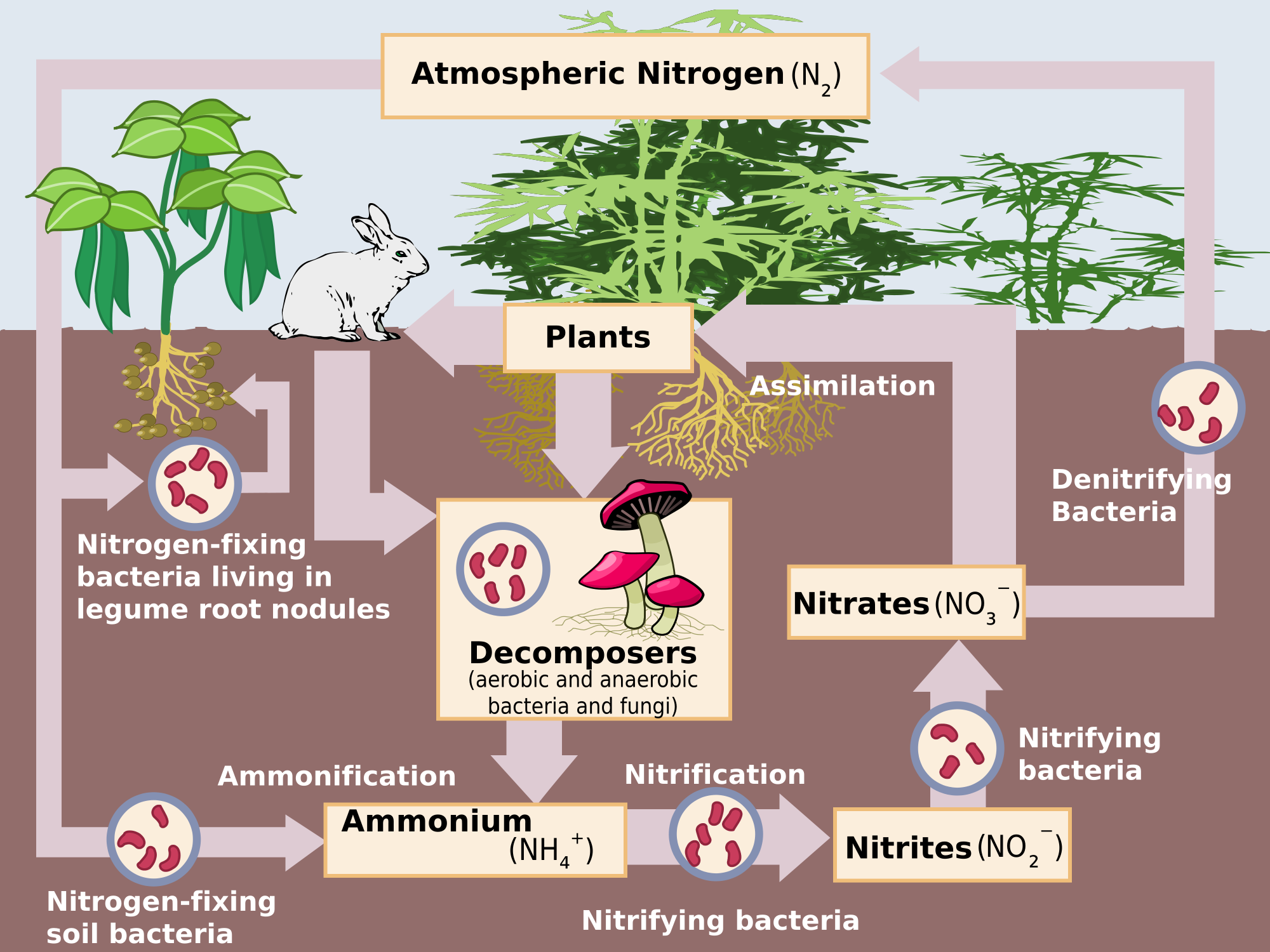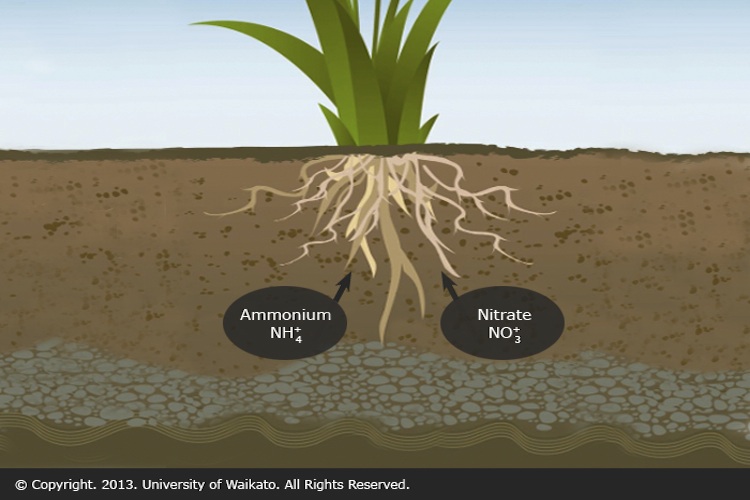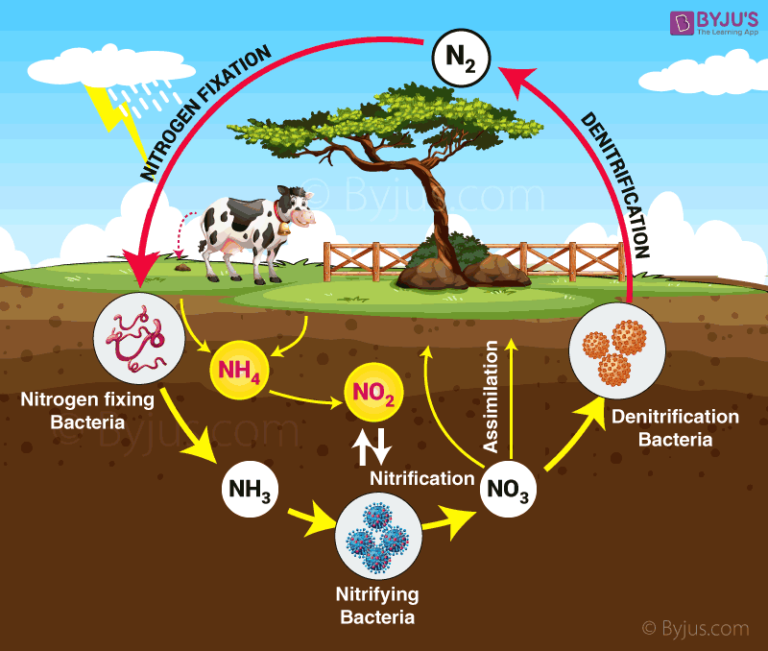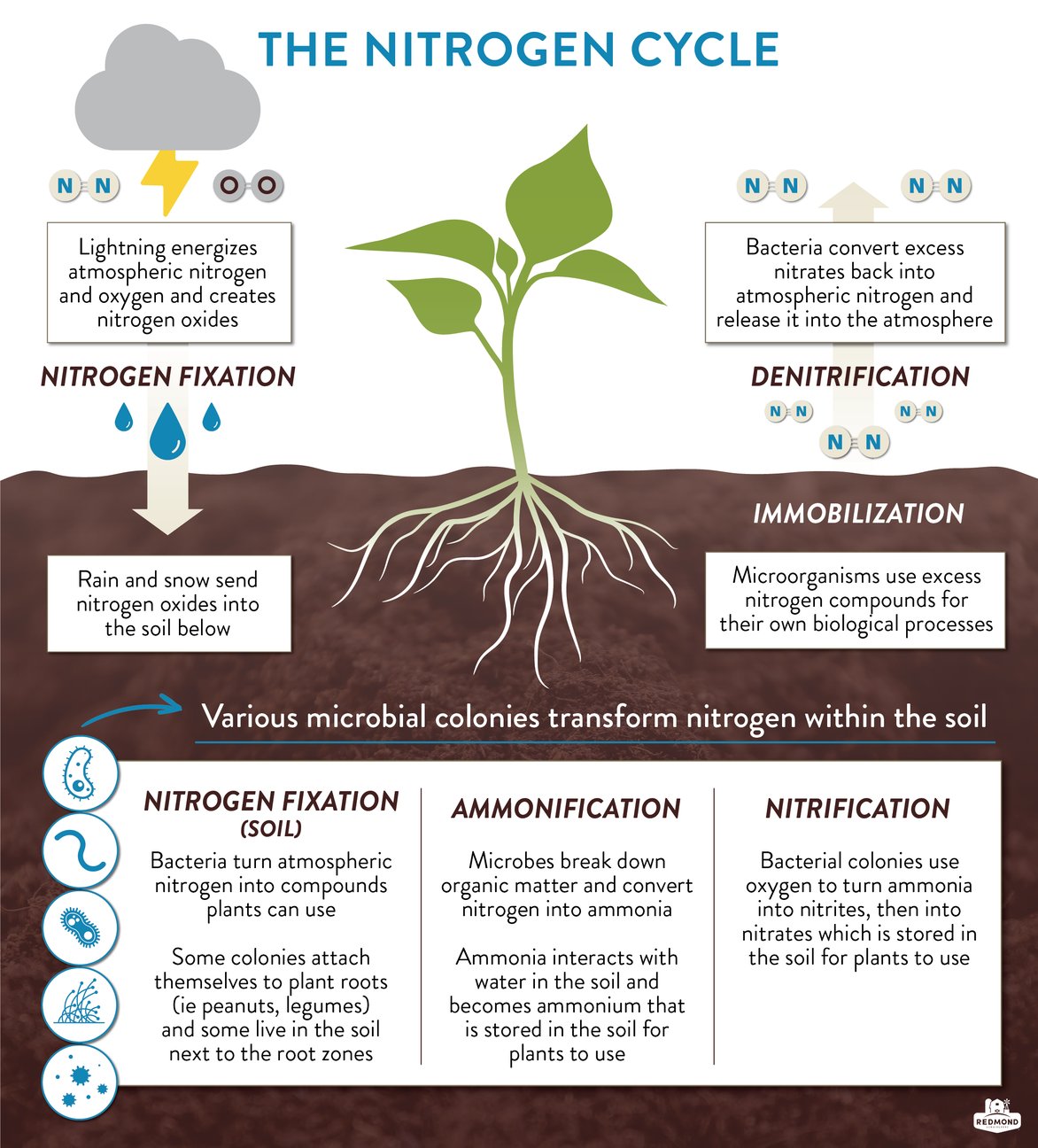Nitrogen Is Available To Plants Mostly In The Form Of - Nitrate is the second form of nitrogen which is available for plant uptake. The table shows the most common forms found in the soil and the. In most soils, nitrate is highly mobile. In the nitrogen cycle, the bacteria that. E) nitrate and ammonium ions in the soil. It is strongly associated with a variety of abiotic. Nitrogen is available to plants mostly in the form of ________. Nitrogen is one of the most important nutrient for plant growth and development; Plants take up nitrogen in the form of ammonium, nitrate, or organic nitrogen. However, in the highly weathered.
However, the form of nitrogen that is most readily. E) nitrate and ammonium ions in the soil. However, plants are able to use only very specific inorganic forms of nitrogen. The table shows the most common forms found in the soil and the. In the nitrogen cycle, the bacteria that. However, in the highly weathered. Nitrogen is one of the most important nutrient for plant growth and development; It is strongly associated with a variety of abiotic. Plants take up nitrogen in the form of ammonium, nitrate, or organic nitrogen. Nitrate is the second form of nitrogen which is available for plant uptake.
Nitrogen is one of the most important nutrient for plant growth and development; The table shows the most common forms found in the soil and the. However, plants are able to use only very specific inorganic forms of nitrogen. In most soils, nitrate is highly mobile. However, the form of nitrogen that is most readily. However, in the highly weathered. Nitrogen is available to plants mostly in the form of ________. In the nitrogen cycle, the bacteria that. E) nitrate and ammonium ions in the soil. Plants take up nitrogen in the form of ammonium, nitrate, or organic nitrogen.
What is Nitrogen Fixation The Tree Center™
It is strongly associated with a variety of abiotic. In most soils, nitrate is highly mobile. The table shows the most common forms found in the soil and the. Nitrate is the second form of nitrogen which is available for plant uptake. However, the form of nitrogen that is most readily.
The nitrogen cycle — Science Learning Hub
In the nitrogen cycle, the bacteria that. However, the form of nitrogen that is most readily. In most soils, nitrate is highly mobile. Nitrogen is one of the most important nutrient for plant growth and development; The table shows the most common forms found in the soil and the.
Koch Agronomic Services
In the nitrogen cycle, the bacteria that. The table shows the most common forms found in the soil and the. However, plants are able to use only very specific inorganic forms of nitrogen. It is strongly associated with a variety of abiotic. Plants take up nitrogen in the form of ammonium, nitrate, or organic nitrogen.
Role of Nitrogen in Crops BioChemiThon BioChemiThon
E) nitrate and ammonium ions in the soil. Plants take up nitrogen in the form of ammonium, nitrate, or organic nitrogen. It is strongly associated with a variety of abiotic. In the nitrogen cycle, the bacteria that. The table shows the most common forms found in the soil and the.
How Plants Use Nitrogen Mother Earth Gardener
However, the form of nitrogen that is most readily. Nitrogen is one of the most important nutrient for plant growth and development; Nitrate is the second form of nitrogen which is available for plant uptake. In most soils, nitrate is highly mobile. However, in the highly weathered.
Nitrogen Cycle Explained Definition, Stages and Importance
Plants take up nitrogen in the form of ammonium, nitrate, or organic nitrogen. In the nitrogen cycle, the bacteria that. The table shows the most common forms found in the soil and the. However, in the highly weathered. It is strongly associated with a variety of abiotic.
Plants And The Nitrogen Cycle
In most soils, nitrate is highly mobile. Nitrogen is one of the most important nutrient for plant growth and development; However, plants are able to use only very specific inorganic forms of nitrogen. It is strongly associated with a variety of abiotic. Plants take up nitrogen in the form of ammonium, nitrate, or organic nitrogen.
Twenty One 21st Century Engineering Challenges (110) Page 5 of 11
Nitrate is the second form of nitrogen which is available for plant uptake. Nitrogen is available to plants mostly in the form of ________. However, plants are able to use only very specific inorganic forms of nitrogen. However, in the highly weathered. Nitrogen is one of the most important nutrient for plant growth and development;
The Nitrogen Cycle determines the amount of nitrogen available for
Nitrogen is one of the most important nutrient for plant growth and development; However, in the highly weathered. In the nitrogen cycle, the bacteria that. Plants take up nitrogen in the form of ammonium, nitrate, or organic nitrogen. The table shows the most common forms found in the soil and the.
Nitrogen Uses In Plants
Nitrogen is available to plants mostly in the form of ________. In the nitrogen cycle, the bacteria that. Plants take up nitrogen in the form of ammonium, nitrate, or organic nitrogen. It is strongly associated with a variety of abiotic. The table shows the most common forms found in the soil and the.
However, Plants Are Able To Use Only Very Specific Inorganic Forms Of Nitrogen.
However, in the highly weathered. In the nitrogen cycle, the bacteria that. However, the form of nitrogen that is most readily. The table shows the most common forms found in the soil and the.
It Is Strongly Associated With A Variety Of Abiotic.
In most soils, nitrate is highly mobile. Nitrogen is one of the most important nutrient for plant growth and development; Nitrate is the second form of nitrogen which is available for plant uptake. E) nitrate and ammonium ions in the soil.
Plants Take Up Nitrogen In The Form Of Ammonium, Nitrate, Or Organic Nitrogen.
Nitrogen is available to plants mostly in the form of ________.









